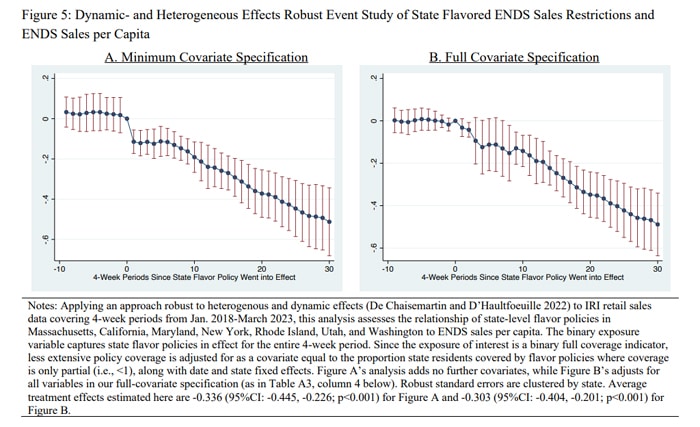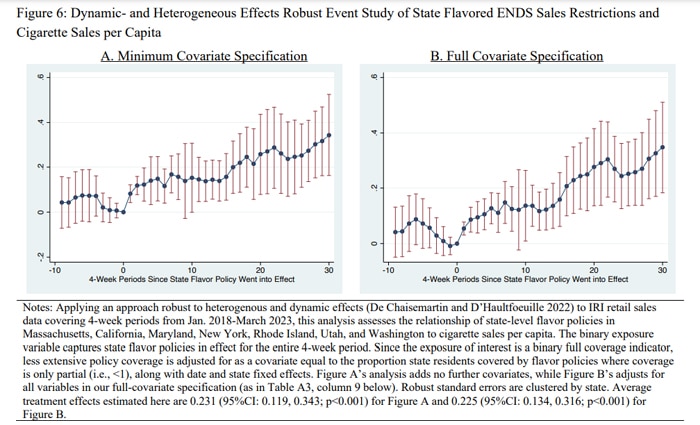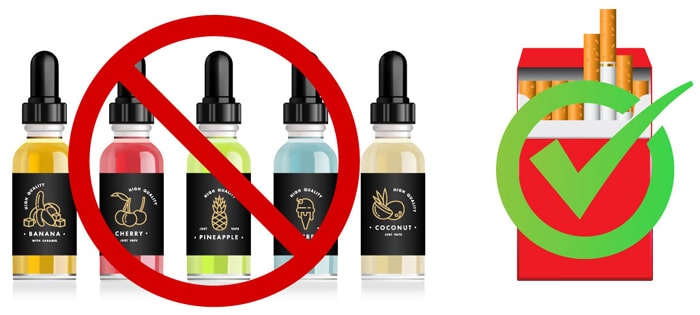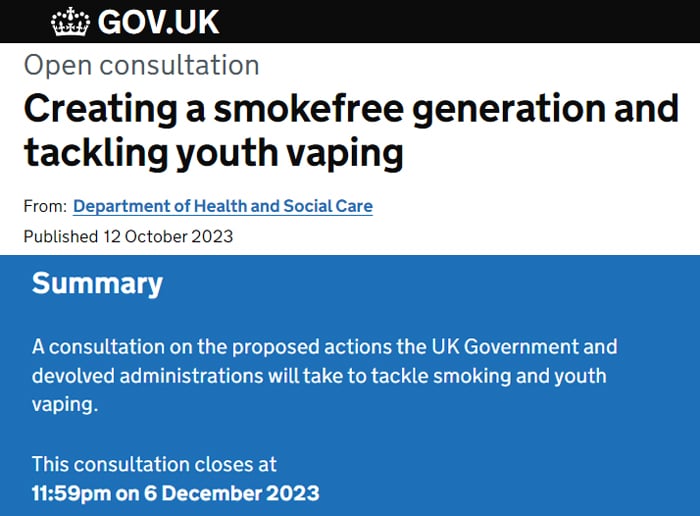Vapers Must Speak Up To Save Vape Flavours In The UK Government Consultation
As Rishi Sunak ponders whether or not to ban vaping flavours, new evidence from across the pond should give him pause for thought.
This is because Yale University research across 375 US localities and seven states, which have applied flavour restrictions to impact youth vaping, found for every flavoured vape pod not sold – 15 more cigarettes were in its place.

To make matters worse, many of those buying the tobacco instead of vapes were underage.
To quote the findings: “Matching new flavour policy data to retail sales data, we find a trade-off of 15 additional cigarettes for every one less 0.7ml pod sold due to flavour restrictions.
“Further, cigarette sales increase even among brands disproportionately used by underage youth. Thus, any public health benefits may be offset by public health costs from increased cigarette sales.”

That’s right. Banning vaping flavours might actually increase youth smoking – the opposite of the UK government’s objective.
The research – funded by the National Cancer Institute (NCI) and Food and Drug Administration (FDA) – will make stark reading for policy advisers at No10, which is currently in the middle of a public consultation into ‘creating a smoke free generation and tackling youth vaping’.
That is why I am appealing to vapers, ex-smokers and anyone who believes in protecting freedom of choice to have their say, take part and make it clear this ban would be a mistake.
Flavoured vapes and access to them matter for a number of reasons, but two should be of particular note.
First and most importantly, we know vape flavours attract smokers away from cigarettes. Or in other words, they work at reducing smoking rates.
Even the World Health Organisation – one of the biggest critics of vaping – accepts flavours are of primary appeal to smokers looking to make the switch, with one of its own reports stating they were useful in ‘helping migration away from tobacco’.
Second, there is already a measure in place to stop minors using age-restricted products – the law.
The Medicines and Healthcare Products Regulatory Agency (MHRA) and Trading Standards can already enforce regulations on vaping products, which can lead to fines and prison sentences for repeat offenders.
Therefore, any flavour ban would simply be a way of circumventing the application of laws applied to every other age-restricted product designed to protect minors.
And to argue a smoker should not be allowed to choose a flavoured tobacco alternative to cigarettes, even though it will help him stop smoking, because a trader might break the law by selling products illicitly to minors, doesn’t make sense.
It would be the same as banning all flavour-infused gins for adults, to stop them getting into the hands of kids.
It should also be remembered that removing an adult’s freedom of choice by banning flavoured vapes may be easier than enforcing established regulation, but it will not prevent the demand.
It will create, however, a surge in unregulated, under-the-counter flavoured products, as alternatives are sought elsewhere.
Instead of a flavour ban, the government should employ over-18 regulatory consistency across all nicotine derived products, including nicotine pouches (which have helped slash smoking rates in Sweden), then apply the law. It should provide more resources to trading standards perhaps by creating a licencing system to sell vapes in order that they can do more challenge 25 purchase testing and clamp down on illicit unregulated sellers.
Doing so will foster the social understanding for responsibility when using nicotine, maximise the power of vaping and other tobacco alternatives as a harm reduction tool and help reduce child use.
Rishi need only look to America for a free lesson on how a proposed flavour ban might pan out in the UK. If he ignores it, the cost for smokers will be dear.
Please help us save vape flavours and the rights of vapers by completing the government consultation here.








